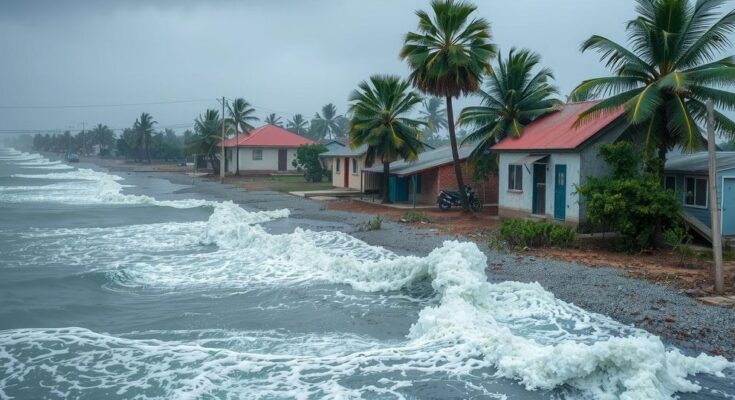The death toll from Tropical Cyclone Chido in Mozambique has risen to 94, with the cyclone causing widespread destruction and affecting over 500,000 people, particularly in the Cabo Delgado province. The storm’s impact is compounded by ongoing social unrest in the region, while neighboring territories like Mayotte and Malawi also report casualties. The need for effective disaster response and climate adaptation measures has never been clearer.
Mozambique has officially updated its death toll from Tropical Cyclone Chido to 94, following the storm’s devastating impact last week. The cyclone, which reached category four strength, obliterated parts of the French island territory of Mayotte before making landfall on the African continent. The country’s disaster management agency announced the increase from a previous count of 76 fatalities. The cyclone wreaked havoc across Mozambique, particularly in the northern province of Cabo Delgado, resulting in significant infrastructural damage and extensive flooding, affecting over half a million citizens.
The destruction left in the wake of Cyclone Chido includes the loss of 110,000 homes, with many residents of Cabo Delgado facing dire conditions. The severe weather event is believed to have been intensified by human-induced climate change, emphasizing a growing environmental crisis in the region. In addition to the humanitarian crisis, Mozambique is grappling with social tensions stemming from a contentious post-election atmosphere, which has resulted in additional casualties due to civil unrest following the recent elections. As authorities continue their cleanup and assessment efforts, the risks of further casualties remain high.
In the French territory of Mayotte, although authorities report 35 deaths and approximately 2,500 injuries, the actual toll may be significantly higher given the presence of undocumented migrants in the area. These individuals frequently live in vulnerable communities most affected by the cyclone’s destruction. Criticism was directed at French President Emmanuel Macron following his comments made during a visit to survey the cyclone’s impact, raising questions about the administration’s sensitivity to the region’s plight.
Following the devastation in Mozambique, the cyclone dissipated but moved into Malawi, where it claimed an additional 13 lives and caused nearly 30 injuries. The evolving situation underlines the need for both immediate humanitarian response and long-term strategies to address climate resilience in the face of increasingly severe weather events.
The aftermath of Cyclone Chido illustrates the severe challenges faced by Mozambique and surrounding territories in the west Indian Ocean. This cyclone, classified as a category four storm, caused catastrophic damage, particularly in Mozambique’s Cabo Delgado province, where local infrastructure and housing have been severely compromised. The region is already experiencing social and political instability due to recent electoral disputes, thereby complicating the response to the cyclone’s impact. Moreover, climate change is increasingly affecting cyclonic activity in the region, as evidenced by the storm’s unprecedented intensity. Given this context, the repercussions of Cyclone Chido highlight the urgent need for effective disaster management and climate adaptation strategies.
In summary, Tropical Cyclone Chido has had a devastating effect on Mozambique, leading to an increased death toll now reported at 94, alongside extensive destruction and humanitarian challenges. The situation in the French territory of Mayotte and Malawi further compounds the regional impact of this storm. The events surrounding the cyclone not only underscore the immediate need for humanitarian aid but also highlight the pressing issues related to climate change and governance in the affected areas.
Original Source: www.abc.net.au




